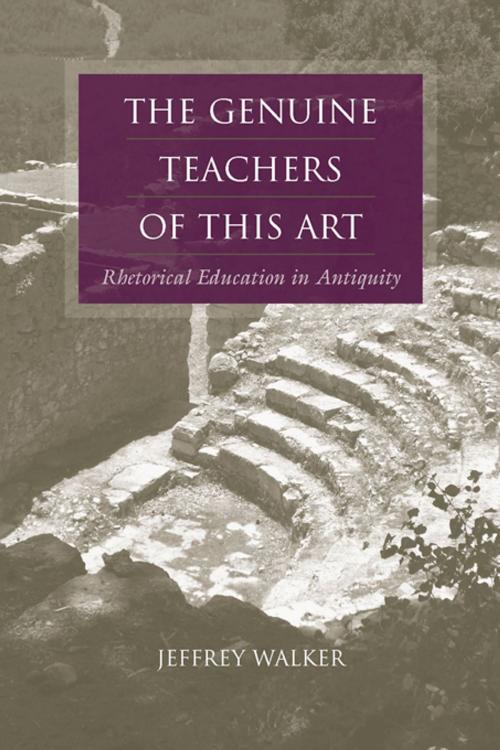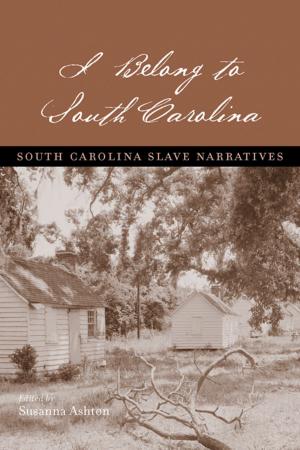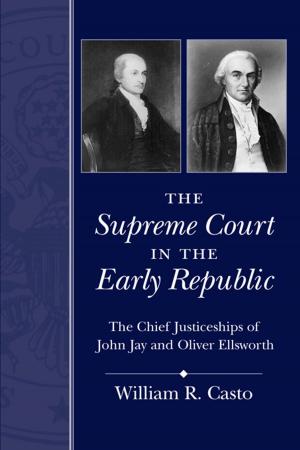The Genuine Teachers of This Art
Rhetorical Education in Antiquity
Nonfiction, Reference & Language, Language Arts| Author: | Jeffrey Walker, Thomas W. Benson | ISBN: | 9781611171822 |
| Publisher: | University of South Carolina Press | Publication: | December 7, 2012 |
| Imprint: | University of South Carolina Press | Language: | English |
| Author: | Jeffrey Walker, Thomas W. Benson |
| ISBN: | 9781611171822 |
| Publisher: | University of South Carolina Press |
| Publication: | December 7, 2012 |
| Imprint: | University of South Carolina Press |
| Language: | English |
Genuine Teachers of This Art examines the technê, or "handbook," tradition—which it controversially suggests began with Isocrates—as the central tradition in ancient rhetoric and a potential model for contemporary rhetoric. From this innovative perspective, Jeffrey Walker offers reconsiderations of rhetorical theories and schoolroom practices from early to late antiquity as the true aim of the philosophical rhetoric of Isocrates and as the distinctive expression of what Cicero called "the genuine teachers of this art." Through a study of the classical rhetorical paideia, or training system, Walker makes a case for considering rhetoric not as an Aristotelian critical-theoretical discipline, but as an Isocratean pedagogical discipline in which the art of rhetoric is neither an art of producing critical theory nor even an art of producing speeches and texts, but an art of producing speakers and writers. Walker grounds his study in pedagogical theses mined from revealing against-the-grain readings of Cicero, Isocrates, and Dionysius of Halicarnassus. Walker also locates supporting examples from a host of other sources, including Aelius Theon, Aphthonius, the Rhetoric to Alexander, the Rhetoric to Herennius, Quintilian, Hermogenes, Hermagoras, Lucian, Libanius, Apsines, the Anonymous Seguerianus, and fragments of ancient student writing preserved in papyri. Walker's epilogue considers the relevance of the ancient technê tradition for the modern discipline of rhetoric, arguing that rhetoric is defined foremost by its pedagogical enterprise, the project of producing rhetors capable of intelligent, effective, and useful civic engagement through speech and writing. This groundbreaking vision of the technê tradition significantly revises the standard picture of the ancient history of rhetoric with ramifications for the contemporary disciplinary identity of rhetoric itself.
Genuine Teachers of This Art examines the technê, or "handbook," tradition—which it controversially suggests began with Isocrates—as the central tradition in ancient rhetoric and a potential model for contemporary rhetoric. From this innovative perspective, Jeffrey Walker offers reconsiderations of rhetorical theories and schoolroom practices from early to late antiquity as the true aim of the philosophical rhetoric of Isocrates and as the distinctive expression of what Cicero called "the genuine teachers of this art." Through a study of the classical rhetorical paideia, or training system, Walker makes a case for considering rhetoric not as an Aristotelian critical-theoretical discipline, but as an Isocratean pedagogical discipline in which the art of rhetoric is neither an art of producing critical theory nor even an art of producing speeches and texts, but an art of producing speakers and writers. Walker grounds his study in pedagogical theses mined from revealing against-the-grain readings of Cicero, Isocrates, and Dionysius of Halicarnassus. Walker also locates supporting examples from a host of other sources, including Aelius Theon, Aphthonius, the Rhetoric to Alexander, the Rhetoric to Herennius, Quintilian, Hermogenes, Hermagoras, Lucian, Libanius, Apsines, the Anonymous Seguerianus, and fragments of ancient student writing preserved in papyri. Walker's epilogue considers the relevance of the ancient technê tradition for the modern discipline of rhetoric, arguing that rhetoric is defined foremost by its pedagogical enterprise, the project of producing rhetors capable of intelligent, effective, and useful civic engagement through speech and writing. This groundbreaking vision of the technê tradition significantly revises the standard picture of the ancient history of rhetoric with ramifications for the contemporary disciplinary identity of rhetoric itself.















